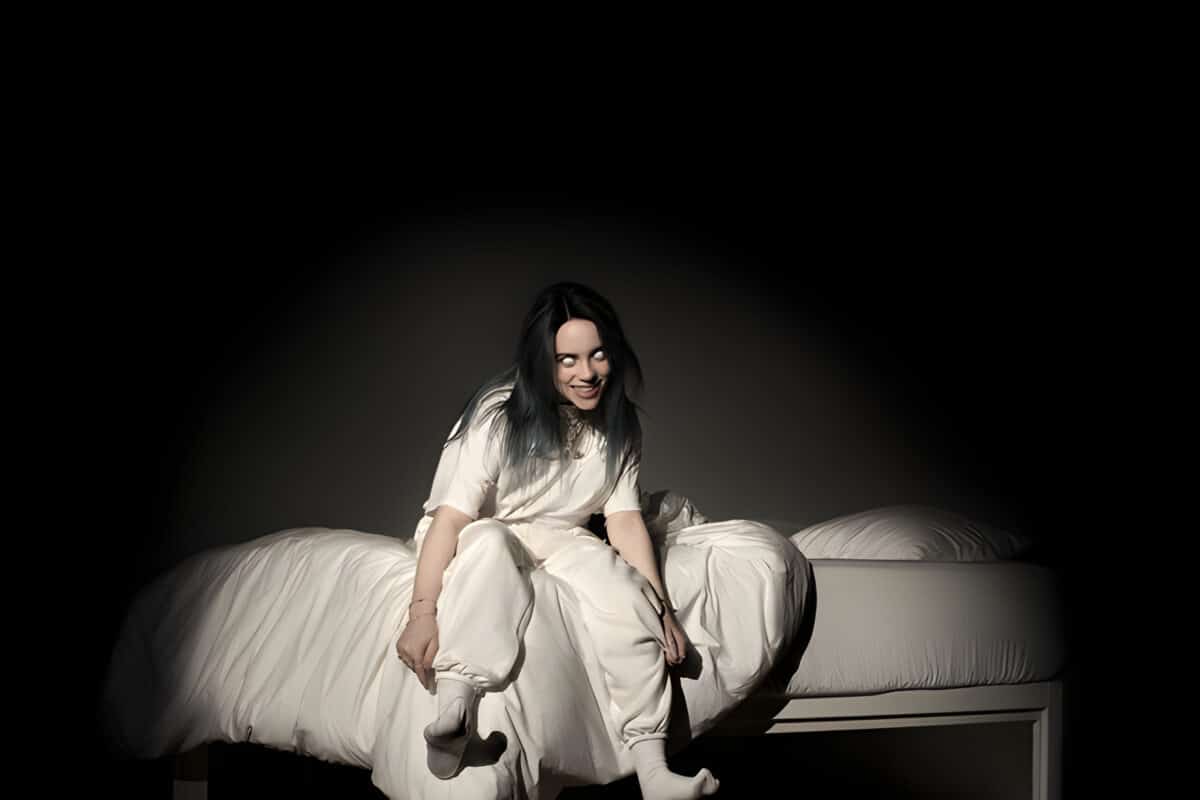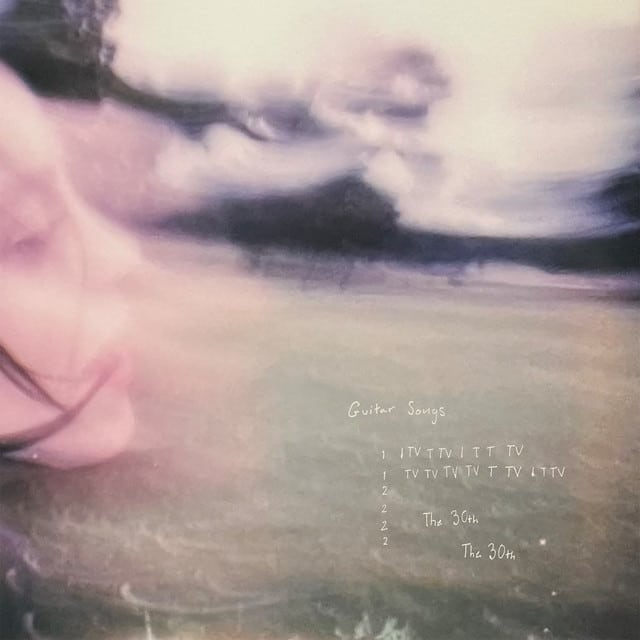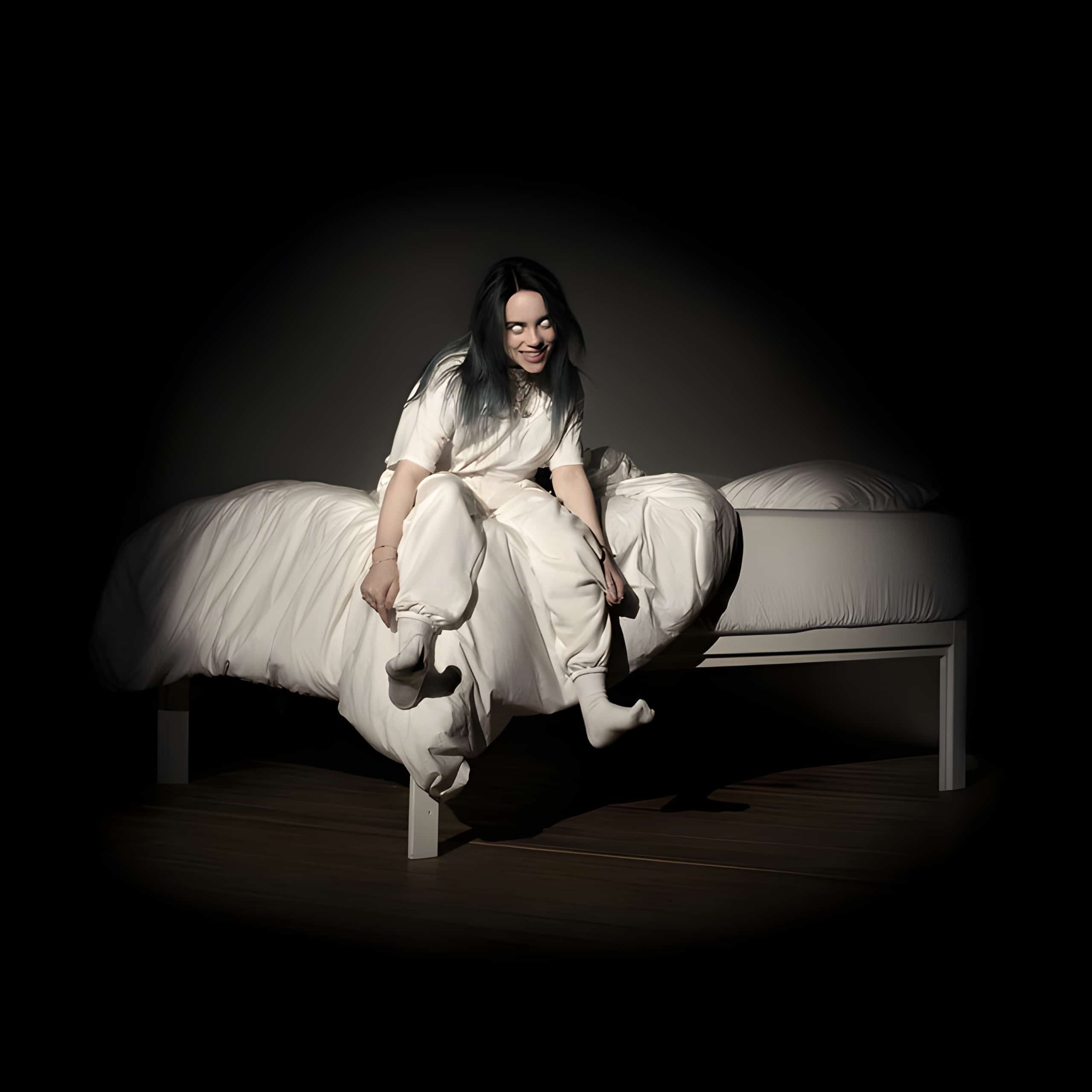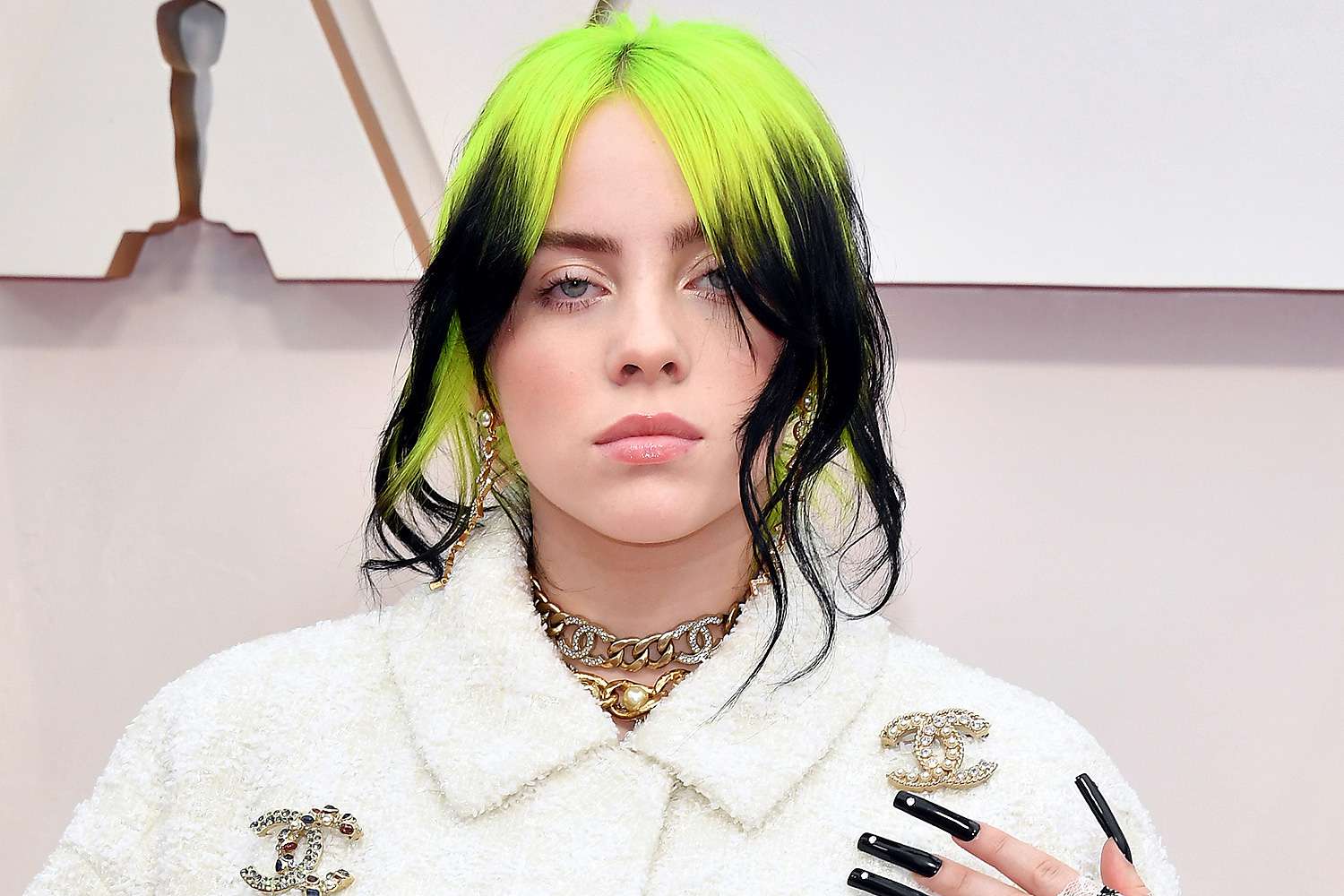Released: 2019
In the deceptively buoyant “bad guy,” Billie Eilish toys with the idea of self-presentation and identity, revealing an impish defiance beneath her soft-spoken exterior. She’s the bad guy, but there’s an underlying critique of the macho posturing often glorified in pop culture.
The song opens with a mildly sinister scene, “white shirt now red, my bloody nose”, hinting at a confrontation or defiance, while the phrase “sleepin’, you’re on your tippy toes” suggests someone trying not to get caught out. When she sings “think you’re so criminal,” there’s a clear irony at play. She’s challenging her subject’s self-perception, like she’s saying ‘You’re not as tough or stealthy as you think you are’.
Progressing to the chorus, “So you’re a tough guy / Like it really rough guy / Just can’t get enough guy / Chest always so puffed guy”, Eilish is caricaturing an image of a stereotypical ‘bad boy’. Her repetition of the word ‘guy’ underscores this stereotypical image of masculinity, which she then flips on its head. She turns the tables saying, “I’m that bad type / Make your mama sad type / Make your girlfriend mad tight / Might seduce your dad type”. This bold declaration, paired with the nonchalant ‘duh’, showcases her rebellious spirit, shattering conventional ideas of femininity and suggesting that she’s the one actually holding the reins.
As the song continues, she pushes her control even further, “I like it when you take control / Even if you know that you don’t / Own me, I’ll let you play the role”, turning the idea of submission into a form of manipulation where she still holds the power.
The line “She’ll pity the men I know” is particularly loaded. Here, she implies that her ‘bad guy’ persona isn’t just a form of rebellion, but a response to the men she’s encountered. It’s like she’s saying ‘I’ve known bad guys, and now I’m choosing to beat them at their own game’.
Ultimately, “bad guy” is a subversive power play, a nuanced critique of gender dynamics in pop music. Eilish, in her unmistakable style, takes a pop-cultural trope, flips it, and serves it back with a smirk.








